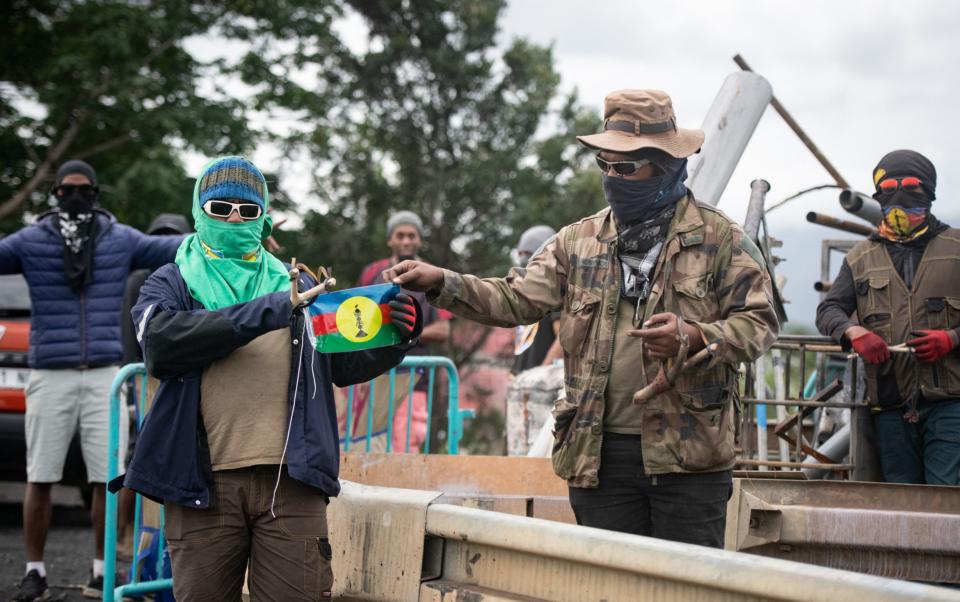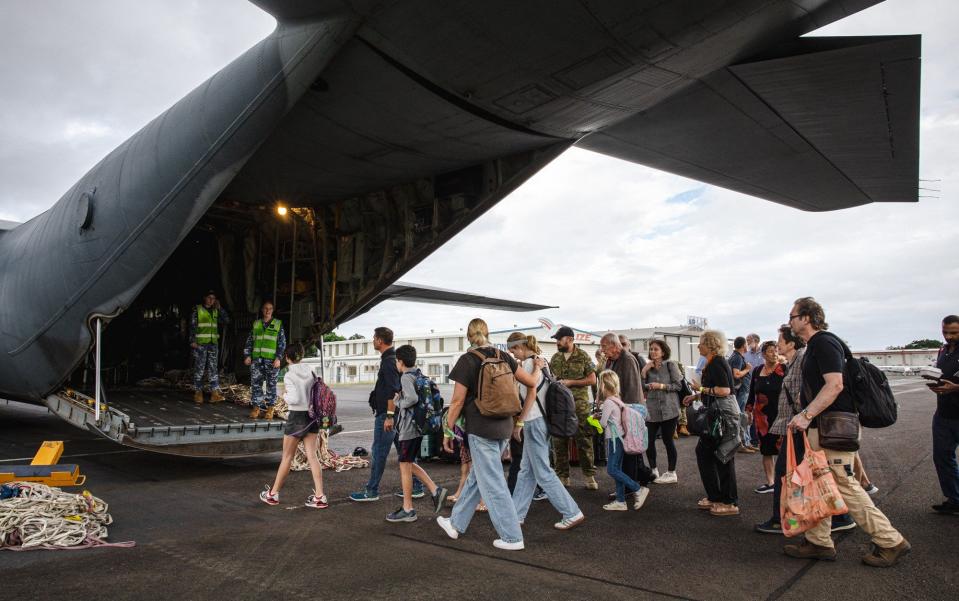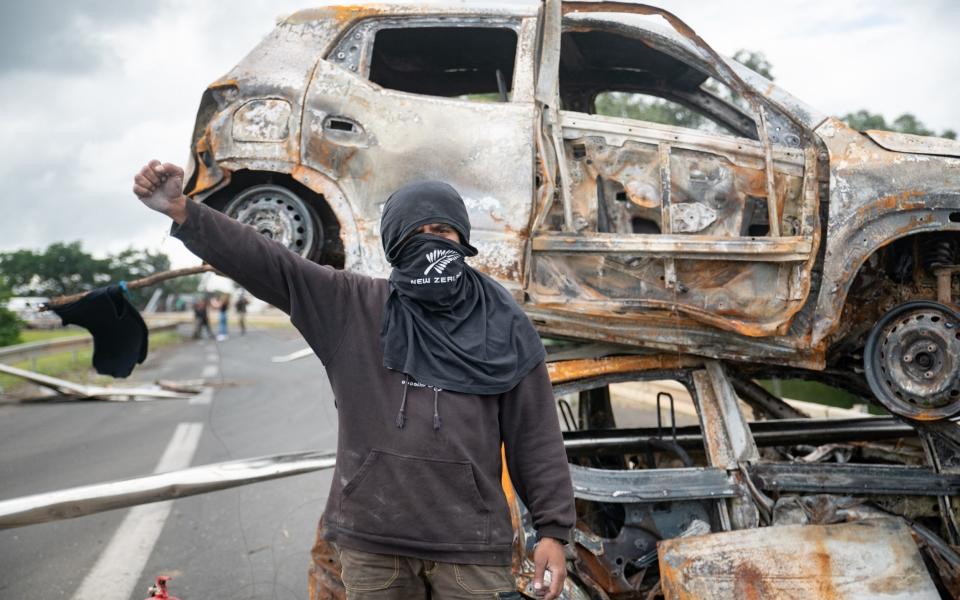Macron flying to New Caledonia in bid to end violent insurrection

Emmanuel Macron will fly to New Caledonia in an attempt to end the violent insurrection that has left six people dead and thousands of tourists stranded.
The French president “will go there tonight”, according to a spokesman, adding that a “return to calm is starting to arrive” in the Pacific territory.
Mr Macron’s visit comes as an Australian Air Force transport aircraft evacuated trapped tourists from a small domestic airport in New Caledonia’s capital Noumea, as separatist roadblocks continued to hinder access to the main international airport – which is closed to commercial flights until at least Saturday.
More than 3,000 people are estimated to have been stranded by a week of unrest that has shuttered the Pacific archipelago’s main international airport.
Australia has estimated at least 300 of its nationals have registered for rescue.
“Passengers are being prioritised based on need. We continue to work on further flights,” Penny Wong, Australia’s foreign minister, said on social media, announcing two initial flights.
The first transport with evacuees landed in Brisbane in eastern Australia around 7pm on Tuesday.
A New Zealand Defence Force plane has also been dispatched to pick up about “50 passengers with the most pressing needs”, according to Winston Peters, the foreign minister.
“In cooperation with France and Australia, we are working on subsequent flights in coming days,” he said.

France is considering extending a 12-day state of emergency, which has led to a night-time curfew, house arrests of suspected ringleaders, as well as a ban on TikTok, the sale of alcohol, carrying weapons and gatherings.
The French government last week sent 1,000 reinforcements to bolster security forces that lost control of some parts of Noumea.
Mr Macron will launch a special “mission” to reduce boiling tensions over a voting reform rejected by indigenous Kanaks, who make up 41 per cent of the archipelago’s 270,000-strong population.
The new law would extend voting rights to tens of thousands of non-indigenous residents who have lived in the territory for at least 10 years.
Pro-independence Kanaks say the change is a form of colonisation by stealth. Those who support it point out that New Caledonia has rejected independence three times in successive referendums, the latest in 2021, and that 20 per cent of the population cannot vote despite paying taxes and contributing to the local economy.

Mr Macron has pledged to validate the contested electoral reform “before the end of June” by senators and deputies during a special congress but “the executive is continuing ... to build a political solution for the territory”, said a spokesman.
Prominent French figures including former prime minister Manuel Valls, who followed the New Caledonia dossier closely while in office, have called for a delay to the constitutional change.
“You can’t make progress on the Caledonia file by issuing ultimatums,” Mr Valls said on Sunday.
But anti-independence representatives want it pushed through. Withdrawing “would prove the wreckers, the looters and the rioters right”, said Nicolas Metzdorf, a New Caledonia MP for Macron’s Renaissance party.
“Violence cannot replace the ballot box in a democracy,” he added.
New Caledonia has been a French territory since the mid-1800s. But almost two centuries on, opinion is split roughly along ethnic lines over whether the islands should be part of France, autonomous or independent.

 Yahoo Sport
Yahoo Sport 






































